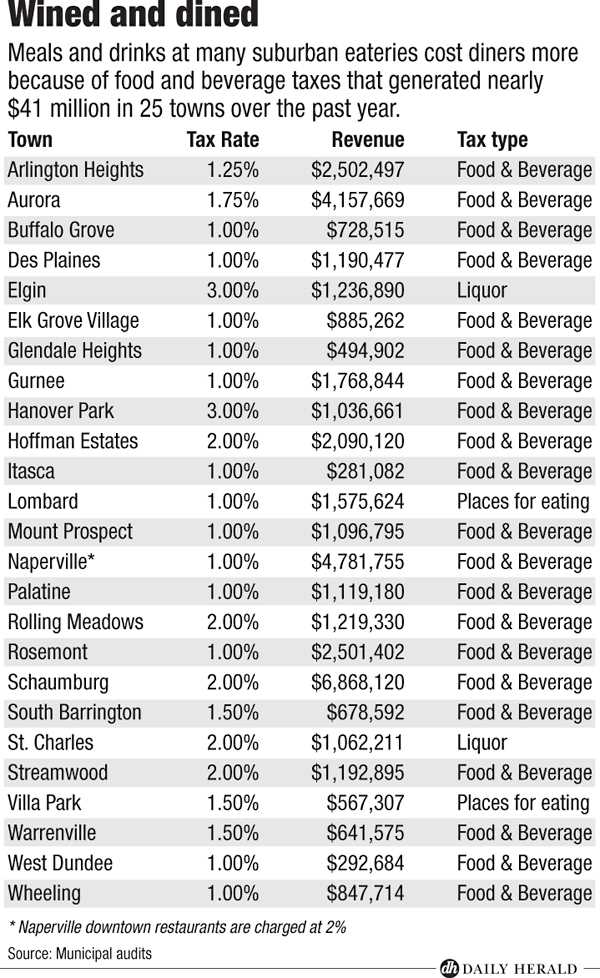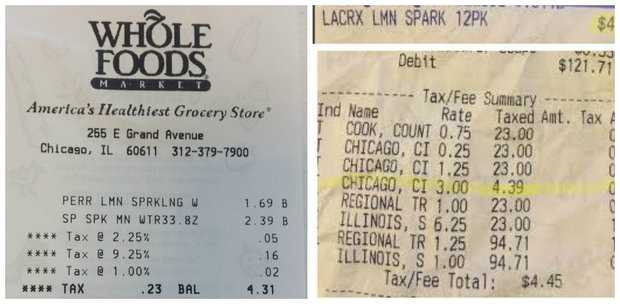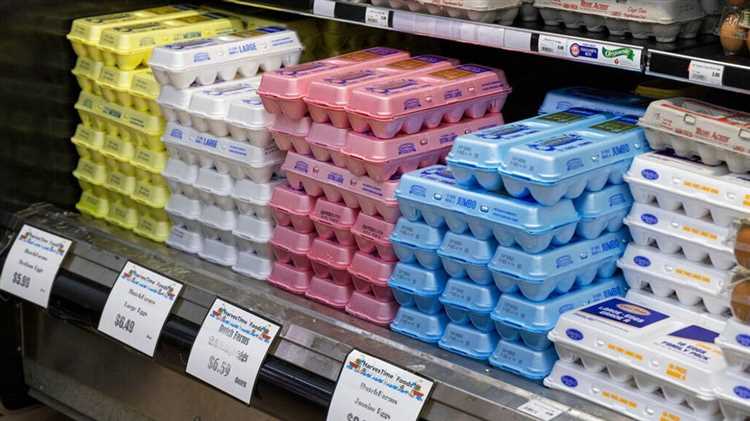When it comes to food taxes, different cities and states in the United States have their own regulations and exemptions. In the city of Chicago, the question of whether food is taxed or not can be a bit confusing. This article aims to provide a detailed explanation of the food tax situation in Chicago.
Firstly, it is important to note that most unprepared food items in Chicago are not subject to sales tax. This includes grocery items such as fruits, vegetables, meat, poultry, fish, dairy products, and bakery goods. These essential food items are considered necessities and thus exempt from taxation.
However, there are some exceptions to this rule. Prepared food items, such as meals at restaurants, are subject to a higher sales tax rate in Chicago. The city imposes a 1% “restaurant tax” on the sale of prepared food and beverages in restaurants, cafes, and other dining establishments. This tax is in addition to the regular sales tax rate.
It is worth mentioning that certain food items that fall into a gray area may be subject to taxation. For example, items like prepackaged salads, deli sandwiches, and hot food sold in grocery stores are generally subject to the restaurant tax. It is advisable to check the specific tax regulations or consult with a tax professional to determine whether a particular food item is taxable or not.
In summary, while most unprepared food items in Chicago are not taxed, prepared food items sold in restaurants are subject to a 1% restaurant tax. To avoid any confusion or surprises, it is always a good idea to familiarize oneself with the tax regulations or seek professional advice. Knowing the ins and outs of food taxation in Chicago can help individuals and businesses budget and plan accordingly.
- Is Food Taxed in Chicago? Explained in Detail [Website Name]
- The Basic Rule: No Tax on Most Grocery Items
- Exceptions: Prepared Food and Non-Essential Items
- Overview of Chicago’s Food Tax System
- Understanding the Exemptions
- Implications for Consumers
- The Impact on Local Businesses
- Question-answer:
- Is there a tax on food in Chicago?
- What types of food are exempt from the tax in Chicago?
- Does the tax also apply to online food delivery services in Chicago?
- How is the food tax collected in Chicago?
- Can tourists visiting Chicago get a refund on the food tax?
- Is food taxed in Chicago?
- What is the sales tax rate on food in Chicago?
Is Food Taxed in Chicago? Explained in Detail [Website Name]
![Is Food Taxed in Chicago? Explained in Detail [Website Name]](/wp-content/images/is-food-taxed-in-chicago-bovtva0j.jpg)
Chicago, known for its vibrant culinary scene and diverse array of restaurants, attracts locals and tourists alike to indulge in its delectable food offerings. However, many people wonder whether food is subjected to taxation in this bustling city. In this article, we will explore the intricacies of food taxation in Chicago and shed light on what you need to know.
The Basic Rule: No Tax on Most Grocery Items
In general, most grocery items sold in Chicago are exempt from sales tax. This includes essential food items such as fruits, vegetables, meat, poultry, dairy products, and bread. If you visit a grocery store and fill your shopping cart with these necessities, you can rest assured that you won’t have to pay any additional taxes on these items.
Exceptions: Prepared Food and Non-Essential Items

While basic groceries are exempt from taxation, there are exceptions to this rule. Prepared foods, such as meals from restaurants, cafes, and food trucks, are subject to a different sales tax rate. If you decide to dine out or order a take-out meal, you will likely encounter a sales tax on the prepared food portion of your bill.
Additionally, non-essential food items may be subject to taxation. This typically includes items like candies, sodas, and snacks that are considered luxuries rather than necessities. When purchasing these items in Chicago, be aware that you may have to pay sales tax on them.
It is important to note that sales tax rates in Chicago can vary depending on the location and type of establishment. Therefore, it is always advisable to check with the specific business or consult the Chicago Department of Revenue for the most up-to-date information on tax rates.
In conclusion, most grocery items in Chicago are tax-exempt, allowing residents and visitors to enjoy their essential food purchases without additional charges. However, prepared foods and non-essential items may be subject to taxation. If you’re planning on dining out or indulging in treats, be prepared for potential sales tax on these items. Stay informed and aware to ensure a smooth and hassle-free food purchasing experience in Chicago.
Overview of Chicago’s Food Tax System

Chicago, the third-largest city in the United States, has a complex food tax system in place. The city imposes a sales tax on all items, including food, but the tax rate varies depending on the type of food and how it is sold.
Basic groceries, such as fruits, vegetables, meat, dairy products, and bread, are generally exempt from the sales tax. However, certain prepared foods, such as restaurant meals and take-out food, are subject to the sales tax at the regular rate.
In addition to the sales tax, Chicago also imposes a separate tax on soft drinks. This tax applies to all non-alcoholic, sweetened beverages, including soda, sports drinks, and energy drinks.
It is important to note that the food tax system in Chicago can be complex and confusing. For example, some food items that are exempt from the sales tax may still be subject to other taxes, such as the soft drink tax. Additionally, some food items may be exempt from taxes when sold as groceries but may be taxed when sold in a restaurant or other prepared food establishment.
If you are unsure about the tax status of a particular food item in Chicago, it is recommended to consult with a tax professional or refer to official tax guidelines. Understanding the food tax system can help individuals and businesses in Chicago accurately comply with tax laws and avoid potential penalties or liabilities.
Understanding the Exemptions
In order to understand how food is taxed in Chicago, it is important to be aware of the various exemptions that exist. These exemptions are designed to ensure that certain types of food are not subject to taxation.
First and foremost, it is important to note that most groceries and raw food ingredients are exempt from the city’s sales tax. This means that staple food items such as fruits, vegetables, meat, poultry, fish, eggs, dairy products, and bread are not taxed when purchased at a grocery store.
However, it is essential to understand that certain prepared foods sold in grocery stores may still be subject to taxation. For example, if you purchase a pre-packaged sandwich or a hot prepared meal from the deli section of a grocery store, these items would be taxable as they are considered ready-to-eat.
Additionally, food purchased for immediate consumption at restaurants, cafes, or food trucks is also subject to taxation. This includes both dine-in and take-out orders.
It’s important to keep in mind that some food items may qualify for an exemption if they meet certain criteria. For example, if a bakery item such as a birthday cake is sold without plates or utensils, it may be eligible for the grocery exemption. However, if the cake is sold with plates and forks, it would be considered a prepared food item and subject to taxation.
Furthermore, food items that are purchased using government assistance programs such as the Supplemental Nutrition Assistance Program (SNAP) or Women, Infants, and Children (WIC) are typically exempt from taxation.
Understanding the exemptions when it comes to food taxation in Chicago is crucial for both consumers and businesses. It ensures that individuals are aware of which food items are subject to taxation and also allows businesses to comply with the relevant tax laws.
In conclusion, while most groceries and raw food ingredients are exempt from taxation in Chicago, prepared foods and food purchased for immediate consumption at restaurants or food trucks are subject to taxation. Furthermore, certain food items may qualify for exemptions depending on specific criteria. It is crucial to be aware of these exemptions to ensure compliance with the city’s tax laws.
Implications for Consumers
The tax on food in Chicago can have significant implications for consumers. First and foremost, it increases the overall cost of purchasing food items. This means that consumers will need to allocate a larger portion of their budget to cover the cost of groceries, meals at restaurants, and other food-related expenses.
For low-income individuals and families, the food tax can be particularly burdensome. It can make it even more challenging for them to afford nutritious food options and maintain a healthy diet. This can have long-term health effects, as a lack of access to healthy food can contribute to the risk of obesity, heart disease, and other diet-related conditions.
Additionally, the food tax may also disproportionately affect certain demographics, such as the elderly and individuals with disabilities, who may rely more on prepared or packaged meals. These types of food items often have higher tax rates and can become even more expensive under the food tax policy.
On the positive side, the food tax revenue is used to support public services and initiatives that benefit the community as a whole. This includes funding for education, public transportation, healthcare, and other essential services. However, it is important to consider the potential trade-offs between the benefits of these public services and the burden placed on consumers through the food tax.
In conclusion, the food tax in Chicago has both advantages and disadvantages for consumers. While it helps fund important public services, it also increases the cost of food and can disproportionately affect vulnerable populations. It is essential for policymakers to carefully consider and address the potential implications on consumers when implementing and modifying food tax policies.
The Impact on Local Businesses

The imposition of food taxes in Chicago can have a significant impact on local businesses, particularly those in the food industry. These taxes increase the cost of doing business for restaurants, grocery stores, and other food-related establishments. As a result, businesses may be forced to increase menu prices or reduce their profit margins to compensate for the additional tax burden.
For small businesses, in particular, food taxes can present serious challenges. These enterprises often operate on thin profit margins, and any increase in expenses can have a detrimental effect on their bottom line. The additional costs associated with food taxes may make it difficult for small businesses to remain competitive and sustainable in a highly competitive market.
Furthermore, food taxes could discourage consumers from dining out or purchasing food from local establishments. Higher menu prices may lead to decreased customer demand, as individuals may choose to eat at home or seek out more affordable options. This decline in business can further exacerbate the financial strain on local establishments, potentially leading to closures or layoffs.
Additionally, the implementation of food taxes can create an imbalance in the local economy. Larger food chains and corporations often have more resources and flexibility to absorb or pass on the costs of these taxes. This can put smaller, local businesses at a disadvantage, as they may struggle to compete with larger market players who can afford to keep prices lower.
Local businesses often play a vital role in the community, providing employment opportunities and contributing to the local economy. The imposition of food taxes in Chicago can jeopardize the livelihood of these businesses and have a ripple effect on the overall economic health of the region.
In conclusion, food taxes in Chicago can have a detrimental impact on local businesses, particularly small establishments. These taxes increase costs, potentially decrease customer demand, and create an imbalance in the local economy. It is essential for policymakers to carefully consider the potential consequences of implementing food taxes and seek alternative solutions to address budgetary concerns without unduly burdening local businesses.
Question-answer:
Is there a tax on food in Chicago?
Yes, there is a tax on prepared food and beverages in Chicago. The tax rate currently stands at 10.25%. However, some grocery items such as unprepared food and certain beverages may be exempt from this tax.
What types of food are exempt from the tax in Chicago?
Unprepared food such as fruits, vegetables, meat, poultry, fish, dairy products, and certain beverages like milk, coffee, and tea are exempt from the tax in Chicago. However, prepared foods and beverages sold in restaurants, cafes, and vending machines are subject to the tax.
Does the tax also apply to online food delivery services in Chicago?
Yes, the tax applies to online food delivery services in Chicago. If you order prepared food or beverages from a restaurant through a delivery app or website, you will be charged the tax. However, if you order groceries or unprepared food items for delivery, they may be exempt from the tax.
How is the food tax collected in Chicago?
The food tax in Chicago is collected by the businesses that sell prepared food and beverages. They are responsible for applying the tax rate of 10.25% to the total cost of the items and collecting the tax from the customers. The businesses then report and remit the collected tax to the City of Chicago on a regular basis.
Can tourists visiting Chicago get a refund on the food tax?
No, tourists visiting Chicago cannot get a refund on the food tax. The tax applies to everyone who purchases prepared food and beverages within the city, regardless of residency or visitor status. However, certain grocery items may be exempt from the tax, so tourists can choose to buy unprepared food to avoid the tax.
Is food taxed in Chicago?
Yes, food is subject to sales tax in Chicago. However, certain types of food are exempt from this tax, including groceries items like fruits, vegetables, meat, poultry, fish, dairy products, and bakery items.
What is the sales tax rate on food in Chicago?
The general sales tax rate in Chicago is 10.25%. However, the sales tax rate on food is lower at 2.25%. This means that most groceries items are taxed at a rate of 2.25% in Chicago.